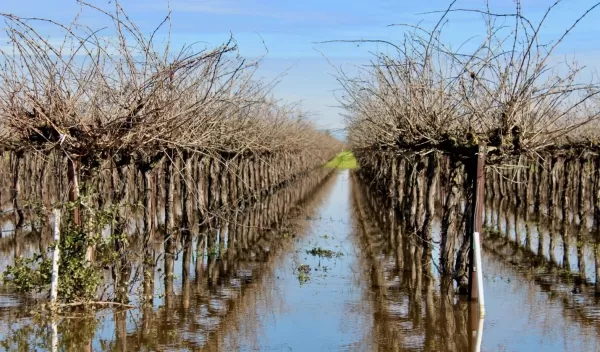
A new way to measure the path of water
When a chemical spills, it's important to know how quickly the spill will spread. When irrigating a crop, a farmer needs to know how fast water moves through soil for absorption by roots. In both cases, understanding water pore structure is necessary.
A new mathematical model to measure pore structure and water flow, described in a study published in Water Resources Research, should enable scientists to determine more accurately how fast liquids move through the soil -- and where they go.
The model was validated by researchers at the University of California, Davis; California State University, Northridge; and the University of North Carolina at Chapel Hill.
"This will open a whole new direction that will help us use our resources more efficiently and better understand the flow of water, contaminants and nutrients," said corresponding author Majdi Abou Najm of UC Davis.
One of the most important equations in hydrology, Darcy's law, has long been used to describe the flow of fluids, but that equation assumes one average pore size, when the reality is more complicated.
"Our model finds a middle ground between reality, which has an infinite number of pore sizes, and the current model, which represents them with one average pore size," said Abou Najm.
The new model provides a simple, inexpensive approach to measuring a variety of pore sizes directly in the field, using items found in a typical grocery store, such as soup thickeners or food additives.
"These scientists have developed a relatively simple and inexpensive method that relies on commonly used experimental tests to assess the size of the openings where water flows," says Ingrid Padilla, a program director in NSF's Division of Earth Sciences, which funded the research. "That information is needed to determine the velocity of water and other fluids in soils."
